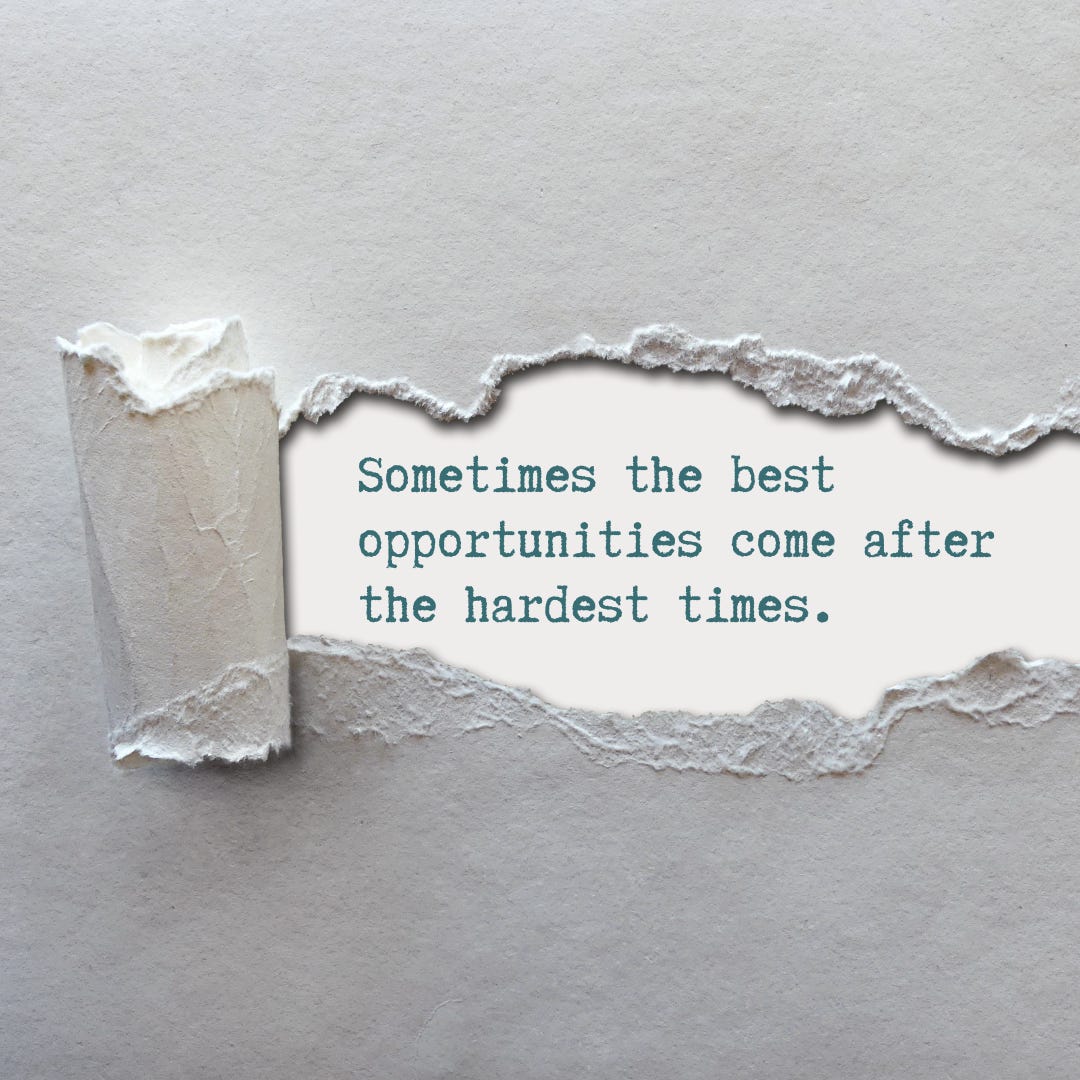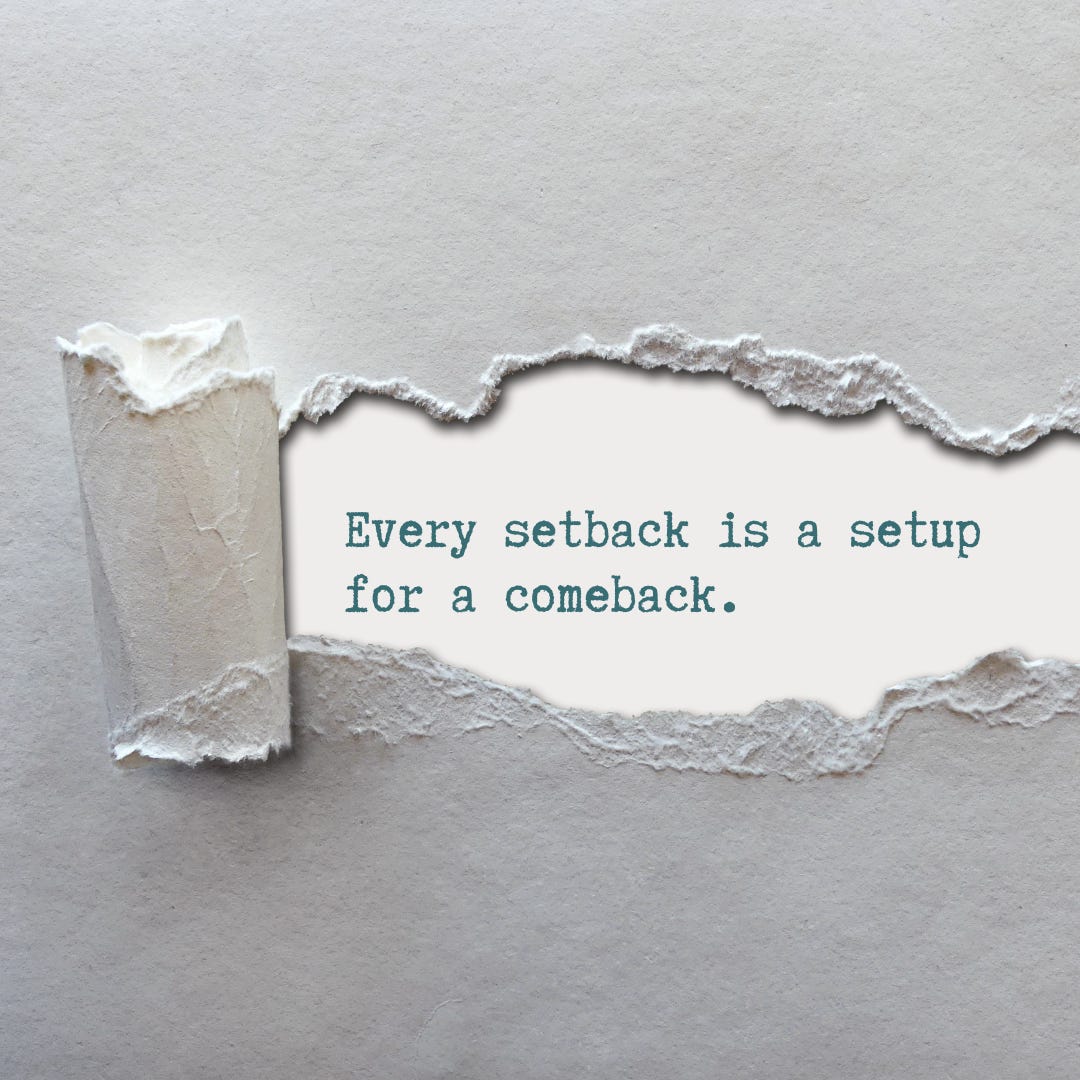
These days, a word nobody likes to hear keeps popping up all over the place–layoffs.
Every time you turn around, there’s a reduction in force at another government agency. Companies that increased their workforce to meet a surge in demand now find themselves overstaffed. Concerns about a potential recession lead other companies to cut costs, often through layoffs.
Typically people who are laid off bear no fault for what befalls them. Layoffs happen even to people who have been doing their jobs well.
Layoffs are a nightmare that nobody wants to endure, but you can’t always escape them. As I've told my kids, if I knew which jobs guaranteed you could never face a job loss, I would have told you what they were. The fact is, there are few, if any, layoff-proof jobs.
Let’s talk about how to peacefully coexist with the possibility of layoffs instead of fearing them.
How to be prepared for a layoff
Since there’s no foolproof way to avoid a layoff, the only thing you can do is be reasonably prepared just in case.
It never hurts to keep your resume and LinkedIn profile up-to-date. Yes, it’s tedious, but you’ll have to tend to this task sooner or later, even if your next job search is voluntary. So you might as well try to stay ahead of the game.
While completing a relatively mindless task like driving a long distance or cleaning, ponder your Plan B. If your employer axed you next week, what companies could be a plausible landing spot for you? Brainstorming is always easier when you’re not under duress, so thinking about things like this before you have to can be beneficial.
It’s wise also to ensure you’re “self-insured” against any disruption in income. Most financial gurus recommend that you have enough savings to cover three to six months’ living expenses just in case. Do you? If you don’t, no need to panic; just commit yourself to gradually building up a reserve that can cover you if necessary.
If there have been rumblings at work about layoffs or troubling signs that job cuts might be coming, it’s time to kick your preparedness efforts into higher gear. If the worst happens, taking at least some of these steps will give you a head start on your next move.
How can you tell when you might be in imminent danger of a layoff? The US News & World Report article, 12 Signs You May Be Facing a Layoff, can help you assess your risk.
Key things to remember if you’re laid off
It’s not you; it’s them. A layoff is something out of your control. Terminations occur because of employee performance or conduct, but layoffs occur because an organization changes direction, merges with another organization, reassesses its labor needs, or has to cut costs. Though painful or unpleasant, you shouldn’t take it personally.
If you don’t have anything nice to say on your way out the door, don’t say it. Especially if the layoff comes out of the blue and you’re angry about it, you might have a few choice things you’d like to say. But sometimes the less said, the better. No sense in alienating the HR people who may be able to assist you or the colleagues who could serve as a reference for your next job.
Take full advantage of everything you’re entitled to. Companies typically ease the blow of layoffs in one way or another, with severance pay, job placement assistance, a continuation of health benefits, counseling services, etc. Pay attention to what’s offered and ask for clarification if necessary. Make sure you fill out all the paperwork you need to, whether it’s for unemployment benefits or COBRA.
Take time to process the loss, especially if you weren’t anticipating it. Of course you’ll want to get back in the saddle and find a new job. But first, give yourself space to absorb the loss; it will help you to be in a better headspace when you’re ready to seek a new job. Some self-care is called for. Try to treat yourself at least as kindly as you’d treat a friend or loved one in the same situation.
It may be hard to think straight at first, and you may feel overwhelmed. That’s normal. The Indeed article, How to Handle Getting Laid Off, walks you through ten steps you need to take on the road to finding a new job (it features a 5-minute video version).
What if you’re not laid off, but your colleagues are?
It’s hard to revel in the relief you feel at learning that your job is safe when colleagues have lost their jobs.
It may be tempting not to say anything to them because you’re unsure what to say, but silence isn’t the kindest option. Losing a job can be a real blow to somebody’s self-esteem. The last thing someone who’s been laid off needs is for their coworkers to act as though they’re invisible.
Help your coworker to feel seen. You don’t have to say anything profound. The most important thing is to be sincere about what you do say. Acknowledge that this sucks. Express your regret. Assure them that you will be glad to help them however you can.
Losing a job may feel like a loss that they need to grieve. Last year, I wrote a post When there really are no words about what to say on someone’s no-good, horrible, worst-of-all-time day. It talks about how to support someone dealing with a calamity.
If you’re looking for tips more specific to a job loss situation, Kevin Heller-Antrim drew on his experience of being laid off for the LinkedIn article 10 Ways to Support Your Colleague Who’s Been Laid Off. Wanda Thibodeaux, host of the Faithful on the Clock podcast, also offers practical suggestions about how to assist in the LinkedIn article–What to Do When Colleagues Get Laid Off.
Getting laid off is a blow, but it’s not a fatal one. Being laid off is a temporary condition. You (or your colleague) will find a new job. Nobody has a crystal ball to predict how soon that new job will materialize. But it will, and no doubt something good will come out of it, even if you or they don’t know what that is yet.






